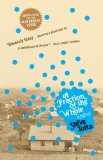Summary | Excerpt | Reviews | Beyond the book | Read-Alikes | Genres & Themes | Author Bio

A Novel
by Brock ClarkeAs a teenager, Sam Pulsifer's accidentally torches an American landmark, and killed two people in the blaze. After ten years in prison, he thinks he has put his past behind him - but when the homes of Robert Frost, Edith Wharton, Herman Melville, and Nathaniel Hawthorne, and even a replica of Henry David Thoreau's cabin at Walden Pond, go up in smoke, Sam becomes the number one suspect.
As a teenager, it was never Sam Pulsifer's intention to torch an American landmark, and he certainly never planned to kill two people in the blaze. To this day, he still wonders why that young couple was upstairs in bed in the Emily Dickinson House after hours.
After serving ten years in prison for his crime, Sam is determined to put the past behind him. He finishes college, begins a career, falls in love, gets married, has two adorable kids, and buys a home. His low-profile life is chugging along quite nicely until the past comes crashing through his front door.
As the homes of Robert Frost, Edith Wharton, Herman Melville, and Nathaniel Hawthorne, and even a replica of Henry David Thoreau's cabin at Walden Pond, go up in smoke, Sam becomes the number one suspect. Finding the real culprit is the only way to clear his name—but sometimes there's a terrible price to pay for the truth.
An Arsonist's Guide to Writers' Homes in New England is a tour de force—a novel disguised as a memoir, a mystery that cloaks itself in humor, and an artful piece of literature that bites the hand that breeds it.
Brock Clarke manages to skewer pretty much every literary pretension there is, and any number of cultural mores, but his satire does not so much bite as gently gum its victims - Clarke is not an outsider laughing at the literary world, but an insider sharing its jokes...continued
Full Review
(750 words)
This review is available to non-members for a limited time. For full access,
become a member today.
(Reviewed by BookBrowse Review Team).
Brock Clarke is the author of three previous books: The Ordinary White Boy (2001) and two story collections: What We Won't Do (2002), which won the 2000 Mary McCarthy Prize in Short Fiction; and Carrying The Torch (2005). His stories and essays have appeared in many places including Virginia Quarterly Review, OneStory, the Believer, the Georgia Review, and the Southern Review. He has received awards from the Sewanee Writers' Conference, Bread Loaf Writers' Conference and others. He lives in ...
This "beyond the book" feature is available to non-members for a limited time. Join today for full access.

If you liked An Arsonist's Guide to Writers' Homes in New England, try these:

by Chris Bachelder, Jennifer Habel
Published 2024
A startlingly original, incantatory novel about marriage, mortality, and making art.

by Steve Toltz
Published 2008
A Fraction of the Whole is an uproarious indictment of the modern world and its mores - a rollicking rollercoaster ride from obscurity to infamy, and the moving, memorable story of a father and son whose spiritual symmetry transcends all their many shortcomings.
Discovery consists of seeing what everybody has seen and thinking what nobody has thought.
Click Here to find out who said this, as well as discovering other famous literary quotes!